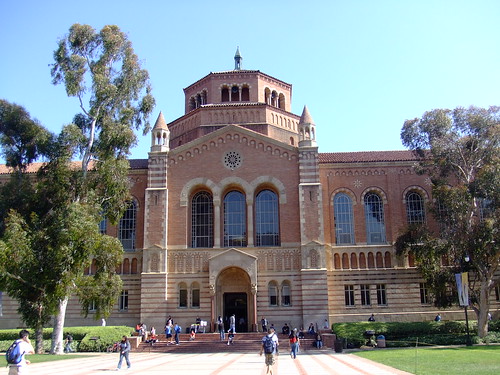Debt Ceiling Fallout for Students 2011/2012 Financial Aid on #CollegeChat August 2

![]() photo credit: Public Notice Media
photo credit: Public Notice Media
With the debt ceiling deadline only days away, millions of college students plans for paying for college are in limbo. On August 2, 2011 at 9 p.m. EDT, Mark Kantrowitz, a nationally recognized bestselling financial aid expert and author, and Sharon McLaughlin, a college planning consultant and former college administrator, will discuss with Twitter attendees the potential impact the debt ceiling crisis will have on financial aid for 2011/2012 during #CollegeChat .
During #CollegeChat, Kantrowitz and McLaughlin will discuss what forms of financial aid are at risk including Pell Grants, Stafford Loans, Perkins Loans and PLUS Loans for Parents. In addition, they will also discuss what impact the debt ceiling crisis may have on colleges themselves including layoffs and shutdowns.
In addition, the panel will discuss what options are available for students to fund their education in the event their federally based financial aid is impacted.
Kantrowitz is the publisher of FinAid.org and author of the new e-book “Secrets to Winning a Scholarship”. He is also the founder of FastWeb.com, the largest and most popular free scholarship matching service. McLaughlin is a college planning consultant and financial aid expert and founder of McLaughlin Education Consulting (http://www.headforcollege.com). She is also a former college administrator with more than twenty years of experience in student enrollment services. Sharon draws her expertise from her work at private and public colleges in New England, both as a college admissions and financial aid administrator.
About #CollegeChat
#CollegeChat is a live bi-monthly conversation intended for teens, college students, parents, and higher education experts on Twitter. #CollegeChat takes place on the first and third Tuesday of the month at 6 p.m. PDT/ 9 p.m. EDT. Questions for each #CollegeChat edition can be sent to Theresa Smith, the moderator of #CollegeChat via http://Twitter.com/collegechat , by entering questions online on the CollegeChat Facebook page at http://ht.ly/1XIqV , or by email. More detailed information about signing up for Twitter and participating in #Collegechat can be found at http://pathwaypr.com/how-to-participate-in-a-twitter-chat .CollegeChat can also be found on Twitter at http://Twitter.com/collegechat .
#CollegeChat: Higher Education Bubble? Is College Worth it?
Over the last few months there has been a lot of media coverage over whether we are in a higher education bubble and if so, is a college degree today worth the expense. During the June 21, 2011 edition of #CollegeChat we will discuss this issue.
NPR took a look at the issue in their recent article “Making Headlines Since the ‘70s: Is College Worth it.” As part of their story, NPR interviewed Kevin Carey, policy director for the think-tank Education Sector. Carey argued that the recent stories debating whether college was worth it was not a new story at all but one that creeps back up during economic downturns.
“It’s missing a lot of really important long-term trends,” he says. “If you look at wage data, what you see is that people with college degrees are making more and more and more money, and basically everyone else is either staying the same or falling back.
Carey went on to point out that college graduates “are the only segment of the economy where employment has actually gotten better during the first five months of this year.”
“If you’re a parent and you’ve spent your whole life trying to get your son or daughter into a good college and spent a lot of money, the last thing you want to hear is that that was a bad idea and they’re going to be coming home and they’ll be unemployed soon,” he says. “And so people gravitate toward stories that speak to their fear and their anxieties.”
Pay Pal founder Peter Thiel has also joined the debate by offering 20 talented college students under 20 an opportunity to earn $100,000 over two years by leaving school and beginning a company instead. According to Thiel’s interview with TechCrunch, he believes:
“There’s been a sea-change in the last three years, as debt has mounted and the economy has faltered. This wouldn’t have been feasible in 2007,” he says. “Parents see kids moving back home after college and they’re thinking, ‘Something is not working. This was not part of the deal.’ We got surprisingly little pushback from parents.” Thiel notes a handful of students told him that whether they were selected or not, they were leaving school to start a company. Many more built tight relationships with competing applicants during the brief Silicon Valley retreat– a sort of support group of like-minded restless students.
Dale J. Stephens is a 19-year-old entrepreneur and one of the first recipients of the Thiel fellowship. According to his recent CNN byline “College is a Waste of Time”, he is also the founder of UnCollege, a social movement supporting self-directed higher education and building RadMatter, a platform to demonstrate talent.
In his CNN byline, Stephens reported:
College is expensive. The College Board Policy Center found that the cost of public university tuition is about 3.6 times higher today than it was 30 years ago, adjusted for inflation. In the book “Academically Adrift,” sociology professors Richard Arum and Josipa Roksa say that 36% of college graduates showed no improvement in critical thinking, complex reasoning or writing after four years of college. Student loan debt in the United States, unforgivable in the case of bankruptcy, outpaced credit card debt in 2010 and will top $1 trillion in 2011.
For Stephens leaving college made sense. He wrote:
We must encourage young people to consider paths outside college. That’s why I’m leading UnCollege: a social movement empowering individuals to take their education beyond the classroom. Imagine if millions of my peers copying their professors’ words verbatim started problem-solving in the real world. Imagine if we started our own companies, our own projects and our own organizations. Imagine if we went back to learning as practiced in French salons, gathering to discuss, challenge and support each other in improving the human condition. leaving college and accepting the Thiel fellowship made sense.
What’s your take? Join us Tuesday, June 21, 2011 to discuss.
Background Reading
http://www.npr.org/2011/06/18/137257390/making-headlines-since-the-70s-is-college-worth-it
http://www.cnn.com/2011/OPINION/06/03/stephens.college/index.html?iref=NS
http://www.thecollegesolution.com/are-we-in-a-higher-ed-bubble/
About #CollegeChat
#CollegeChat is a live bi-monthly conversation intended for teens, college students, parents, and higher education experts on Twitter. Questions for each #CollegeChat edition can be sent to Theresa Smith, the moderator of #CollegeChat via http://Twitter.com/collegechat, by entering questions online on the CollegeChat Facebook page at http://ht.ly/1XIqV , or by email. CollegeChat can also be found on Twitter at http://Twitter.com/collegechat.
Recognizing Mental Health and Learning Disability Issues in College Students on May 3, 2011 #CollegeChat
Dr. Susan Fletcher, Ph.D., a practicing psychologist and expert in the fields of AD/HD, learning disabilities, emotional intelligence and relationships, will discuss how to recognize common mental health disorders, including depression and alcohol use, as well as learning disabilities that exhibit for the first time during college, on #CollegeChat, Tuesday, May 3, 2011 at 9 p.m. Eastern. Dr. Fletcher is the founder of Fletcher & Associates Psychological Services, P.A.
During #CollegeChat, Dr. Fletcher, http://twitter.com/#!/SmartZonePhD , will discuss with attendees:
- What are the most common psychological issues to show up in college students?
- Why do these issues present during college? Are there specific triggers?
- Why is there in increase in depression and anxiety disorders in college?
- Are colleges equipped to deal with these disorders? How can students get help?
- Why is there an increase in college age suicides? What can be done to prevent them?
- Are self-injurious behaviors also on the rise? What are the symptoms?
- Is AD/HD increasing in college aged students? Why does it appear for the first time for some while in college?
- How can students get tested for AD/HD if they suspect that they might have it?
- How can AD/HD be managed effectively?
Susan Fletcher, Ph.D. is a practicing psychologist and expert in the field of AD/HD, learning disabilities, emotional intelligence and relationships. Susan began her education at the University of Florida where she earned her undergraduate degree in Health and Human Performance. She then went on to earn a Masters in Counseling Psychology and her Ph.D. from Texas Woman’s University. After a few years in private practice, Susan switched gears to work with Dr. Phil McGraw (Dr. Phil) as a litigation specialist on high-profile cases, assisting in the production of mock trials, preparing expert witnesses and assisting in jury selection. Susan is a frequent television news program guest and is quoted frequently in national magazines. She has been in private practice for almost 20 years. Dr. Fletcher is using the innovative Quotient ADHD System to aid in the diagnosis and management of AD/HD in her patients. The Quotient is the first FDA-cleared objective test for ADHD.
About #CollegeChat
#CollegeChat is a live bi-monthly conversation intended for teens, college students, parents, and higher education experts on Twitter. #CollegeChat takes place on the first and third Tuesday of the month at 6 p.m. PST/ 9 p.m. EST. Questions for each #CollegeChat edition can be sent to Theresa Smith, the moderator of #CollegeChat via http://Twitter.com/collegechat , by entering questions online on the CollegeChat Facebook page at http://ht.ly/1XIqV , or by email. More detailed information about signing up for Twitter and participating in #Collegechat can be found at http://pathwaypr.com/how-to-participate-in-a-twitter-chat .CollegeChat can also be found on Twitter at http://Twitter.com/collegechat .

